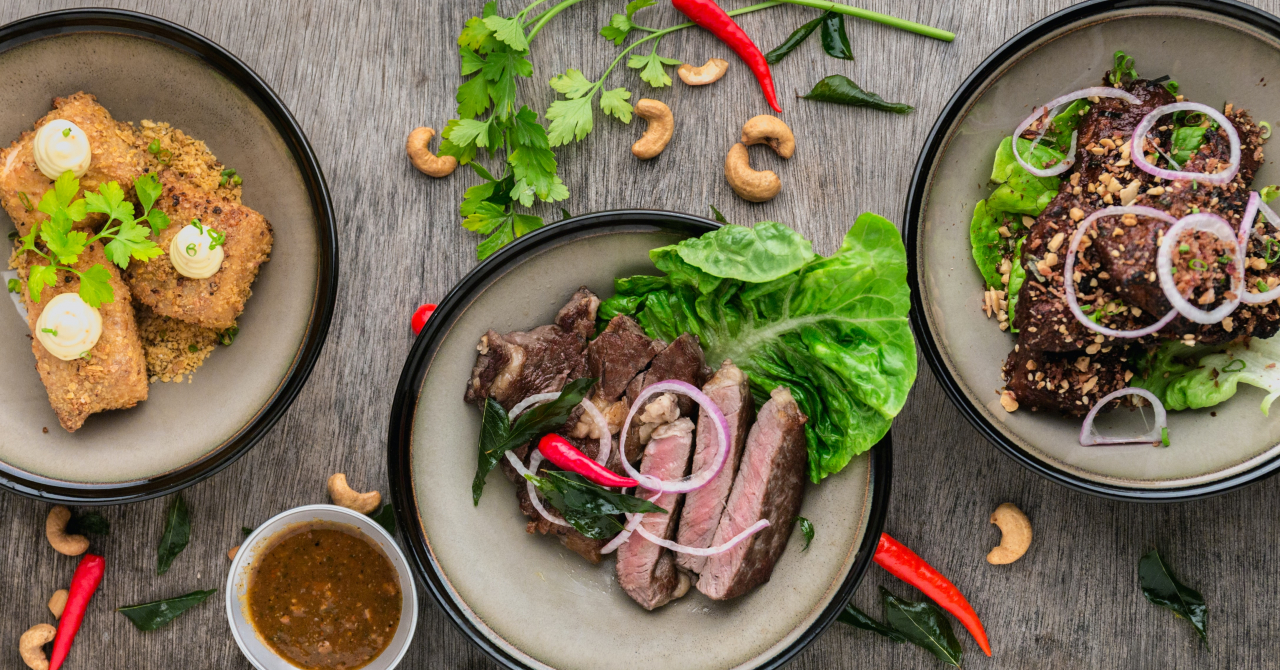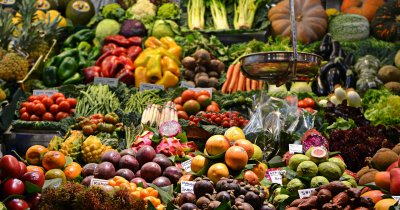In Romania, plant-based or vegan products, as they are also known, are becoming more and more ubiquitous on supermarket shelves, which is great for providing a choice for consumers who want to act and reduce carbon emissions coming from agriculture.
Plant-based alternatives to dairy products, for example, can be great for lactose-intolerant people that don't want to give up drinking milk or eating some sort of cheese.
At the same time, vegan alternatives to meat products can still be very nutritious, while also helping the environment by saving on the space used for grazing.
The good news is that plant-based alternatives have come down in price recently and they are likely to become cheaper so that more people can make the switch.
Let's take the salami as an example, which is a popular "filling" for sandwiches; the traditional, meat-based dry salami costs around 24 RON for 330 g, while the plant-based version of the very same salami type is 24 RON for 240 g of product.

Technically, you are getting less for your money, but the latter might be worth it when considering the climate benefits and the fact that it is a healthier alternative.
Sliced cheese is another type of food that can go in a sandwich, and the dairy version of it goes for around 8.74 RON for 150 g in stores, while the vegan alternative retails for 8.65 RON for the same amount.
This time around, the plant-based alternative is actually a little bit cheaper and while that depends on the producer that made it, it's still a win for the plant-based foods.
The taste is also not too different, as I've tried it myself and was pleasantly surprised by how much plant-based cheddar cheese tasted like the normal dairy product.
Let's take a look at a different type of product, one that goes on the barbecue, sausages.
"Homemade" sausages made from meat can be had for about 18 RON for 450 g, while the plant-based alternative retails for around 13.7 RON for 200 g, so if we were to make them even, 450 grams of vegan "homemade" sausages would go for 34.25 RON.
This is no doubt more expensive, nearly by two times as much compared to the meat-based version, however, it again depends on the exact type of sausage that you purchase and the manufacturer.
Thuringian sausages, for example, cost 27.5 RON for 400 g of the animal-based product, while the vegan alternative goes for 13.7 RON for 200 g, which would be 27.4 RON for 400 g, a pinch lower compared to the traditional counterpart.
Dairy alternatives for lactose-intolerant people
Dairy alternatives can be the saving grace for people that can't consume lactose-based products, due to being intolerant to them.
With time, vegan alternatives have become very similar in taste and very nutritious, being a healthy and tasty solution for everyone to enjoy that is, oftentimes, fairly affordable.
Greek style cheese is another dairy product that's tasty and nutritious, and the plant-based alternative retails for less than 16 RON for 200 g, whereas the milk-based one goes for 14.4 RON.

The Romanian mici (a minced meat product) is a very popular Romanian recipe, present at nearly every barbecue in the country, which is why the plant-based alternative could be a hit in the country, but even abroad.
This is where the vegan alternative is at its biggest price disadvantage, though, since 200 g of pea-based mici costs 16 RON, which would be nearly 80 RON for 1 kg, whereas the meat-based version goes for around 19 RON for 1 kg, depending on the meat combination used.
This is a very substantial difference and the biggest so far when comparing plant-based foods to animal-protein ones.
Still, with time, the production process of pea-based mici could get less complicated and less expensive, which means that we could be seeing them more often grilled at parties.
One more product that I wanted to look at was canned tuna, as it is a very tasty and nutritious food that can be eaten for breakfast or during the day, especially as a Mexican or Californian salad.
Plant-based tuna is one of the newest alternatives to animal-protein, and a vegan Californian or Mexican salad mix goes for around 15 RON for 240 g.
By contrast, the fish-based version retails for anything from 9 to 16 RON for 160 g, depending on the company, but still, a clear win for the plant-based food.
This is another product that I've tried myself and was surprised to find that the taste and texture of the fish alternative was very similar to that of tuna, and in combination with the salad dressing, the difference was nearly non-existent.

Cost, no longer a problem for the most part
This, of course, depends on the manufacturer and the product type, but generally speaking, plant-based foods are very close to matching the price of animal-based ones, sometimes being even cheaper.
According to plantbasednews.org, Dr. Marco Springmann, a researcher at Oxford University, said that "the fact that vegan, vegetarian, and flexitarian diets can save you a lot of money is going to surprise people."
Plant-based foods are also more sustainable, as they require less ground for crops compared to animals, which need space for grazing and sleeping, among other things.
Pablo Moleman of ProVeg Netherlands said that "meat has always been a product that requires an enormous amount of raw materials. To make one kilogram of meat, you need up to ten kilograms of grain. Now, in times of scarcity, that takes its toll."
"Plant-based meat clearly wins out on efficiency, and we now see that reflected in the price", he concluded.
 Mihai - Cristian Ioniță
Mihai - Cristian Ioniță












Any thoughts?